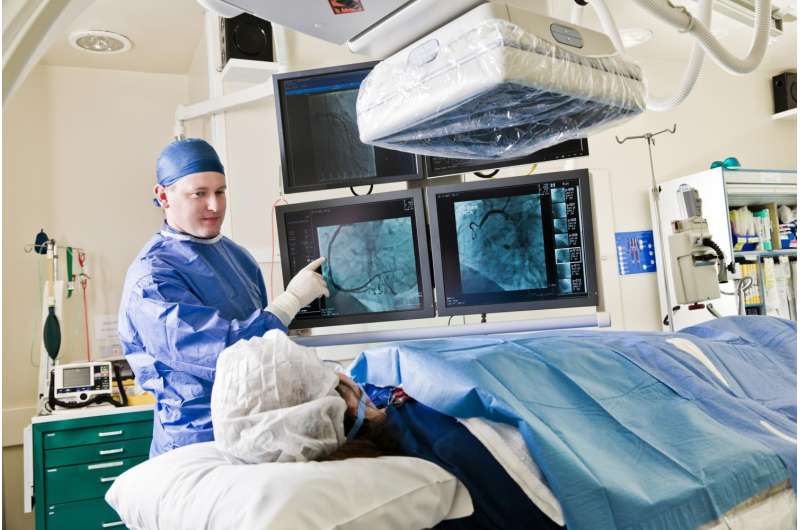Study finds new markers associated with recurrence of AFib in previously treated patients

Ablation procedures restore a regular heartbeat in patients who have a dangerous, abnormal heart rhythm called atrial fibrillation. But it doesn't always work. Now, a new study suggests that certain molecules are associated with the recurrence of erratic heartbeats in some patients after ablation therapy.
These molecules—known as circulating microRNA—have the promise of becoming screening tools to help determine which patients will benefit from various therapies, researchers from the Intermountain Medical Center Heart Institute in Salt Lake City have found.
Circulating microRNA refers to microRNA that has spilled out of the cell into the blood and can be measured. MicroRNA is the name given to small, very stable non-coding RNA molecules that are involved in gene regulation.
Researchers from the Intermountain Medical Center Heart Institute used a series of blood markers to identify those patients whose ablations worked the first time. They compared 85 patients who had successful ablations with 55 patients whose atrial fibrillation recurred within a year.
The microRNA particles studied can impact inflammation, fibrosis, and the heart's electrical activity. Because RNA molecules are so small and stable, they can be detected in circulating biological fluids like saliva and blood.
The Intermountain Medical Center Heart Institute researchers found low levels of three microRNA molecules—designated as 21, 150, and 328—in patients whose atrial fibrillation came back after ablation. Those molecules have already been associated with ablation's atrial scarring, called remodeling and adverse electrical healing.
Results of the study will be presented at the American College of Cardiology's Scientific Session on March 18, 2017, in Washington, D.C.
"Our genetic makeup is important in how we respond and heal from procedures," said T. Jared Bunch, MD, of the Intermountain Medical Center Heart Institute and the study's senior investigator. "MicroRNA particles are a direct result of our genetic make-up. As we try to identify treatments that are tailored to an individual person, microRNA has the promise to help us determine who may be a better candidate for ablation versus other therapies."
It's estimated that between 2.7 and 6.1 million people in the United States suffer from atrial fibrillation.
Ablation cures atrial fibrillation in 60 to 70 percent of people, but for some, multiple procedures are required. Scarring and fibrosis outside of the veins that can involve both upper heart chambers often result in recurrences of atrial fibrillation after an ablation.
Researchers hope the study findings will help doctors determine which treatments are more likely to work for different patients with atrial fibrillation, including those who wouldn't benefit from ablation, which is expensive and carries some risks.


















